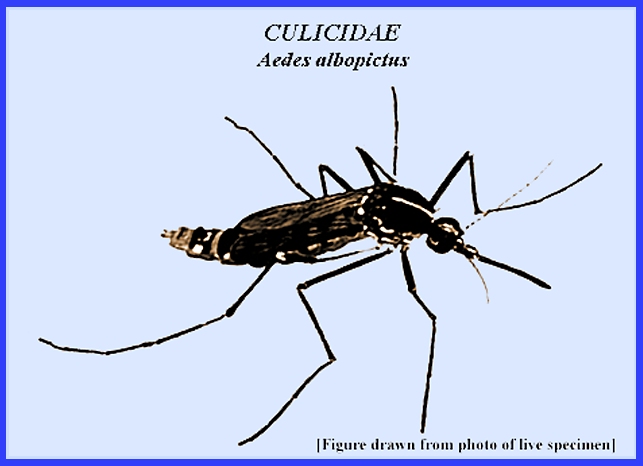File: <chikungunya.htm> <Medical Index> <General Index> Site Description Glossary <Navigate
to Home>
|
CHIKUNGUNYA (Contact) Please CLICK on
image & underlined links for details: Symptoms
include fever, joint pain and swelling, headache, muscle pain, and rash. It begins with a sudden fever 2-4 days
after exposure, which continues for up to seven days. The other body pains that can last for
months and sometimes even years follow this.
Mortality is under one percent, affecting elderly and chronically ill
patients primarily. Two mosquito
species that have been found to transmit the virus to humans are Aedes albopictus and Aedes aegypti. Reservoir hosts include birds, rodents,
monkeys and cattle. There is a
resemblance of Chikungunya to Dengue Fever except that only primates serve as
reservoir hosts for dengue. There is
neither vaccine nor treatment for the infection. Visitors to areas where the virus occurs are advised to wear
protective clothing, to use repellents and to avoid mosquitoes generally. = = = = = = = = = = = =
= = = = = = = = Key References: <medvet.ref.htm> <Hexapoda>
Matheson, R. 1950.
Medical Entomology. Comstock
Publ. Co, Inc. 610 p. Service, M. 2008. Medical
Entomology For Students. Cambridge
Univ. Press. 289 p Legner, E.
F.
1995. Biological
control of Diptera of medical and veterinary importance. J. Vector Ecology 20(1): 59_120. Legner,
E. F. 2000. Biological control of aquatic
Diptera. p. 847_870. Contributions to a Manual of Palaearctic
Diptera, Vol. 1, Science Herald, Budapest. 978 p. |
